Narrow by
2019 OCLC Research Presentations List
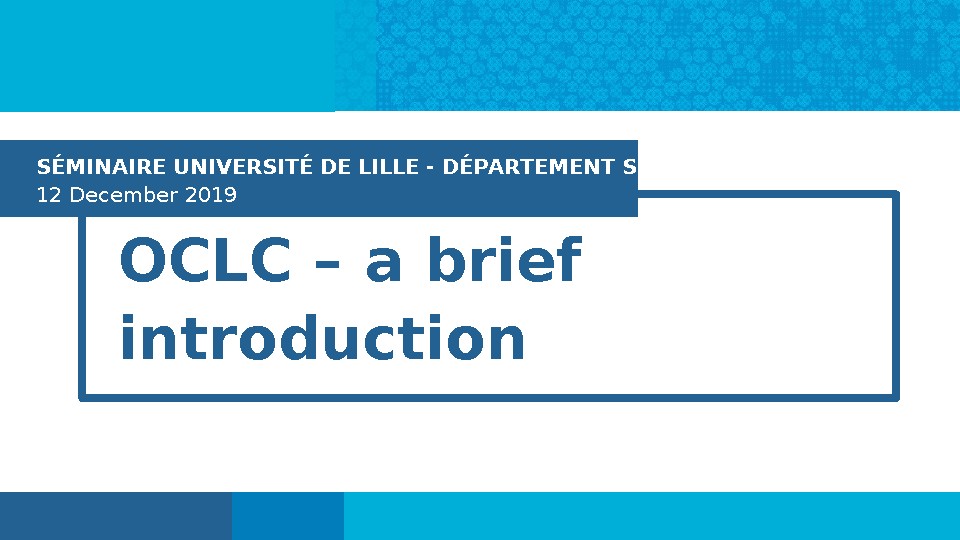
OCLC – A Brief Introduction
Lille, France
Delivered by Prof. Widad Mustafa El Hadi, this presentation provides a brief introduction to OCLC as an organization. It overviews OCLC’s history from its 1967 origins as the Ohio Computer Library Center to its role today as a global network of libraries, highlighting OCLC’s ongoing contribution to the diverse needs of libraries through innovative products, services, research, and continuing education opportunities.

Radical Access—Leveraging Creative Commons Licenses to Open up Archives
Speakers explain the suite of options available using Creative Commons licensing to allow creators to give their intellectual property to archives and special collections libraries. Webinar participants learned strategies for explaining open licenses to donors (and sellers), negotiating for them, articulating them in archival descriptions, and helping researchers make sense of them.
Topics: Archives and Special Collections, Works in Progress
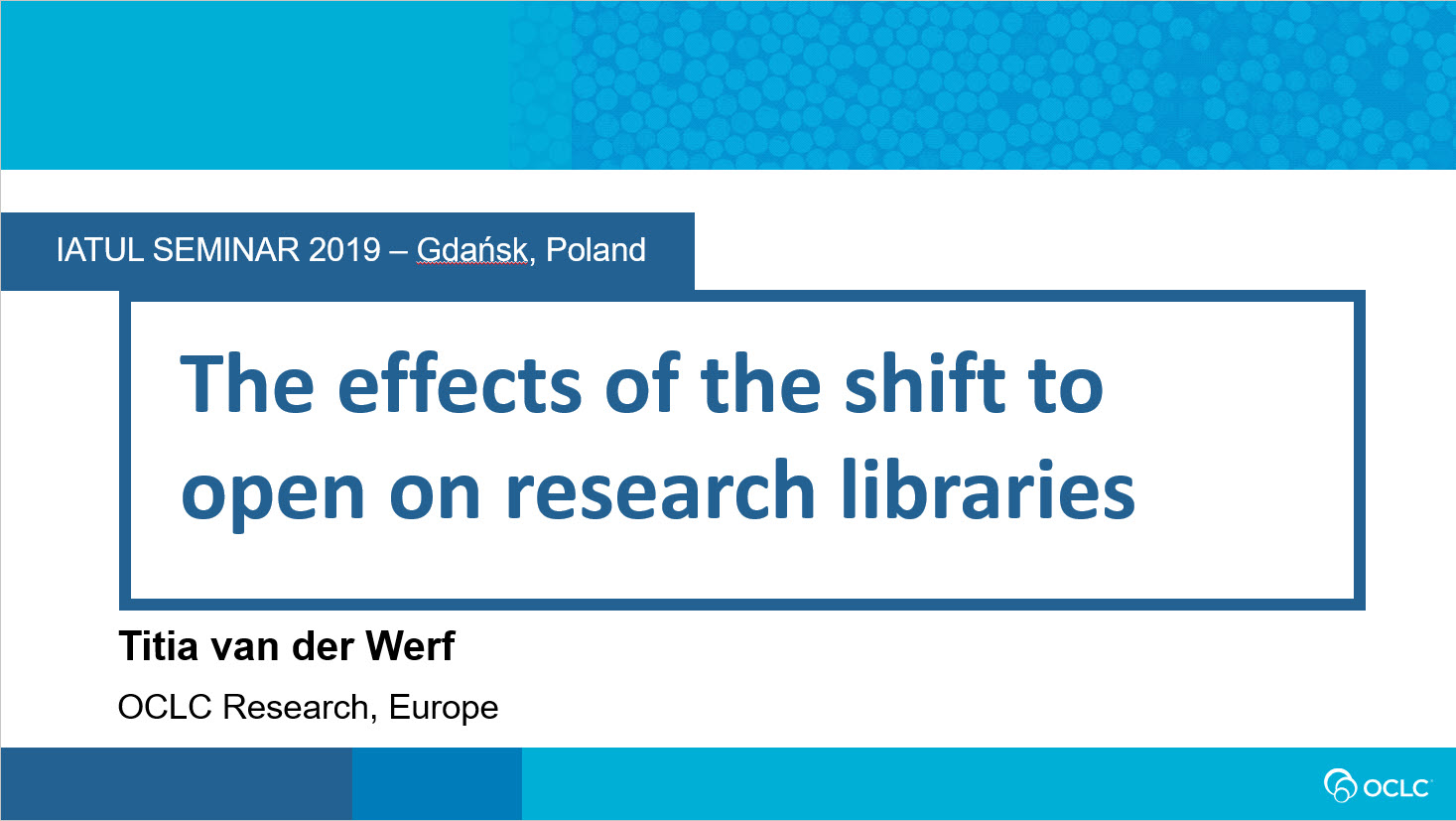
The Effects of the Shift to Open on Research Libraries
Gdańsk, Poland
Last year, OCLC surveyed libraries from 82 countries around the world on their open content efforts, investments, and opinions. The majority (72% of 705 respondents) were from research and university libraries. In this session, Titia presents data from the majority group through the lens of Lorcan Dempsey’s collection directions and contextualizes the findings within the broader trend toward more openness. She also shares questions raised by the findings and suggests areas for further exploration.
Topics: Open Access, Collective Collections
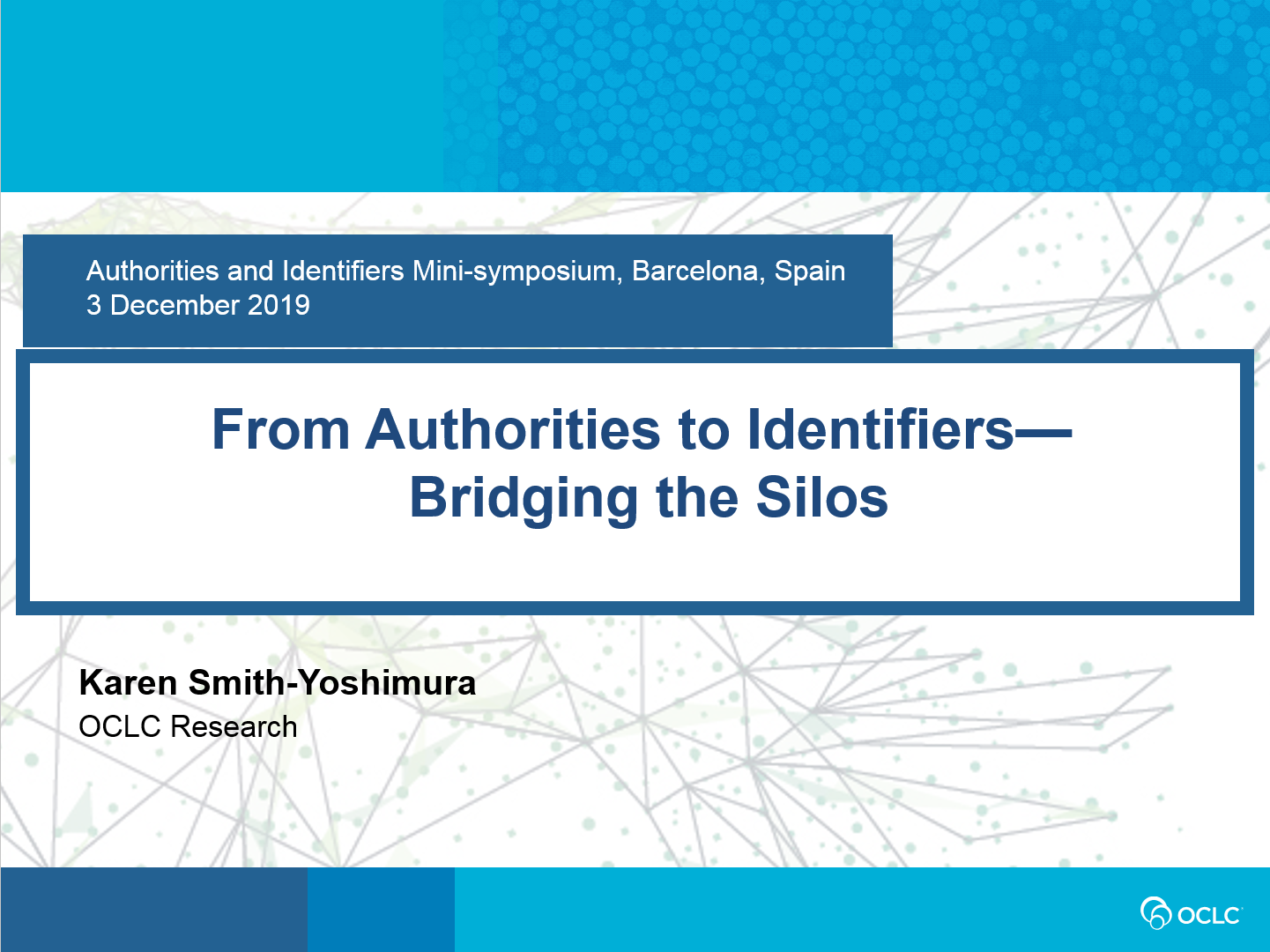
From Authorities to Identifiers—Bridging the Silos
In this keynote presentation, Karen Smith-Yoshimura explains how library practices are shifting from authority control to using identifiers and how identifiers can disambiguate and control names more expeditiously and make library data more web friendly. She notes the emergence of identity hubs to address identity management across domains, aggregating names from different types of resources.
Topics: Linked Data

Lessons from Representing Library Metadata in OCLC Research’s Linked Data Wikibase Prototype (video)
Hamburg, Germany
This presentation highlights key lessons from OCLC Research’s Linked Data Wikibase Prototype (“Project Passage”), a 10-month pilot done in 2018 in collaboration with metadata specialists in 16 US libraries.
Additional Materials:
PowerPoint Slides (11MB)
Topics: Linked Data
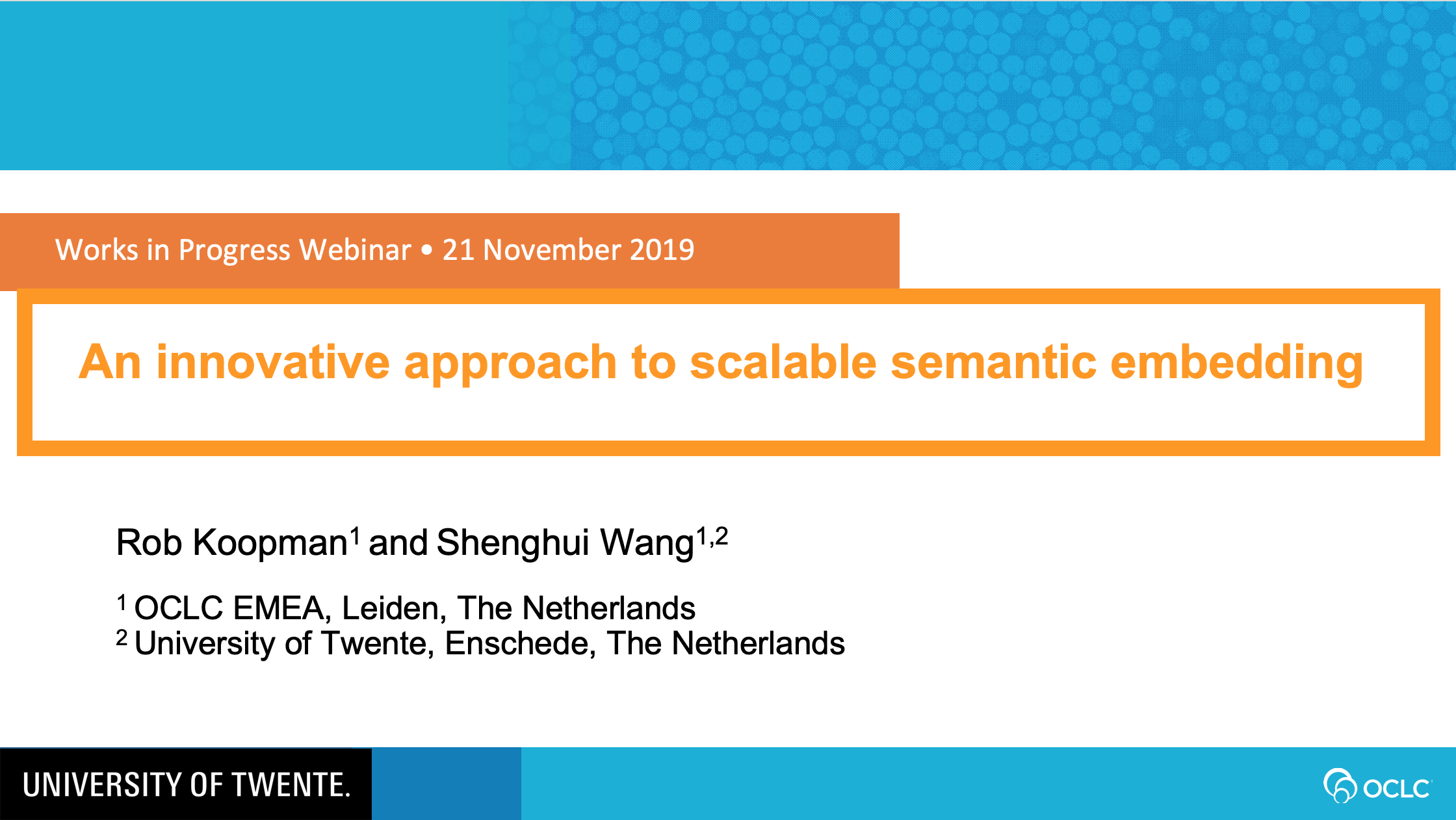
Ariadne, an innovative approach to scalable semantic embedding (video)
The OCLC Research project Ariadne Semantic Embedding is a demonstration of a practical solution to support libraries in this field. Watch this webinar to see the potential of this scalable semantic embedding method for other applications such as entity disambiguation, citation recommendation, clustering and collection exploration.
Topics: Data Science, Semantic Embedding, Works in Progress
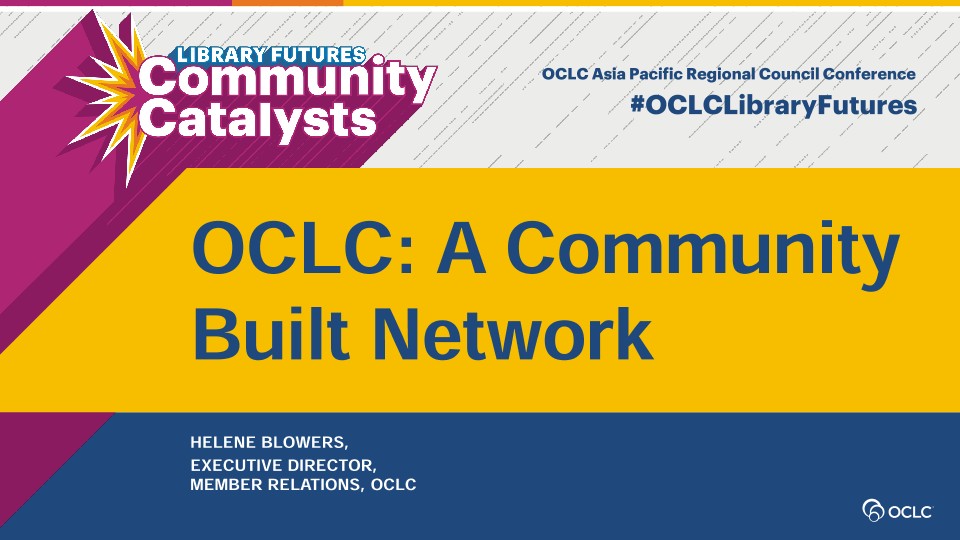
Build Powerful Networks to Achieve More Together
Helene Blowers, Director, Membership, explains how OCLC uses the power of collaboration to scale learning, scale innovation, and scale capacity, through a library network that allows libraries to collaborate at scale to achieve efficiencies and impact.
Topics: Sourcing and Scaling
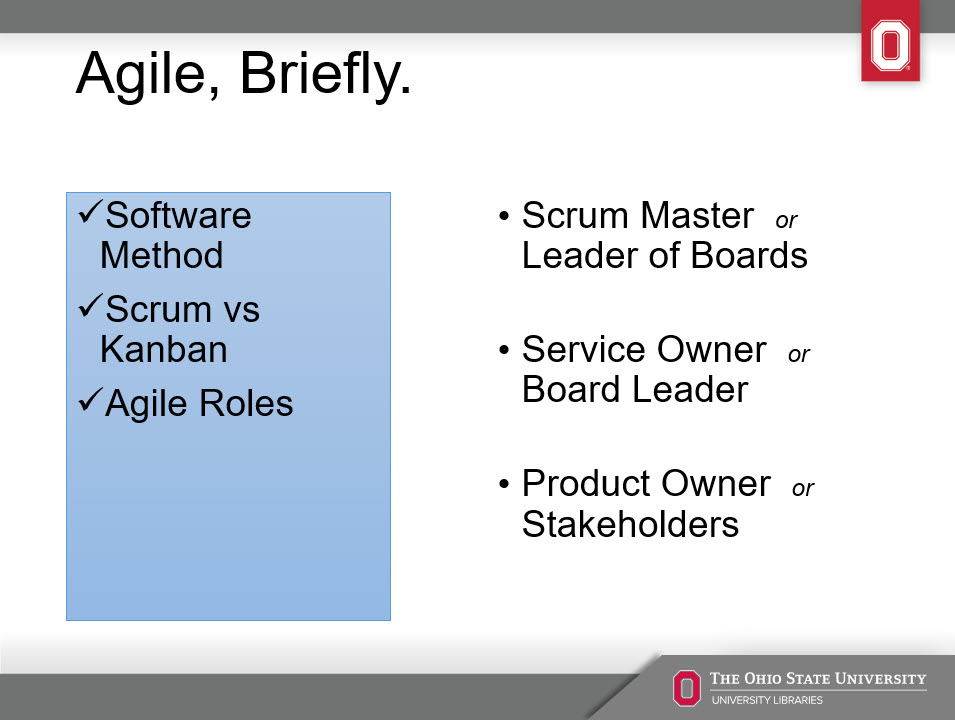
Managing Archival Technical Services with Agile Software Development Methods at Ohio State University Libraries
In this presentation, library staff from Ohio State University Libraries discuss how implementing Agile helped archival staff to improve productivity overall and increased opportunities for staff members to cross-train, develop skills, and lead projects.
Topics: Archives and Special Collections, Works in Progress
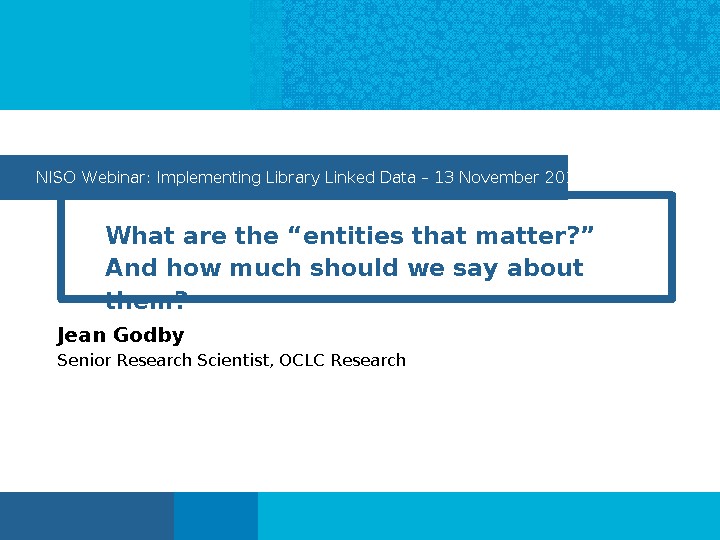
What are the entities that matter, and how much should we say about them?
Virtual
This presentation discusses the work of catalogers who participated in OCLC's Project Passage in 2018. It develops the theme of identification of "the entities that matter" and concludes with a brief update on OCLC's post-Passage activities involving resource description in Wikibase.
Topics: Linked Data, Wikimedia
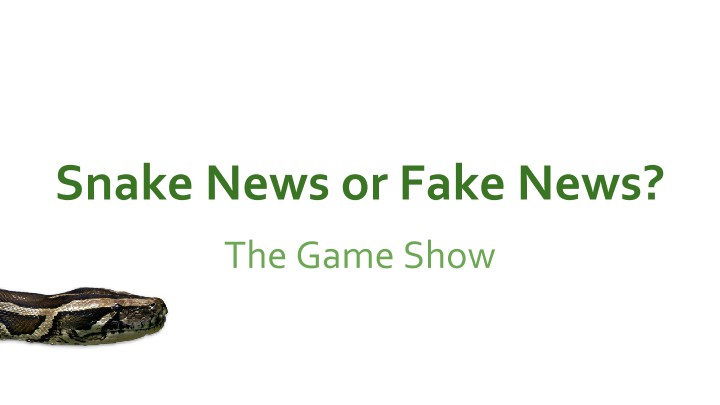
Snake News or Fake News? A Game Show About How Students Evaluate Scientific Information in Google Search Results
Charleston, SC, USA
This game show-style presentation gives an overview of a study that uses simulations of Google Search Engine Result Pages (SERPs), a think-aloud protocol, and interviews to capture student’s point of selection behavior and real-time cognition in judging the helpfulness, citability, and credibility of online resources.
Topics: Information Literacy
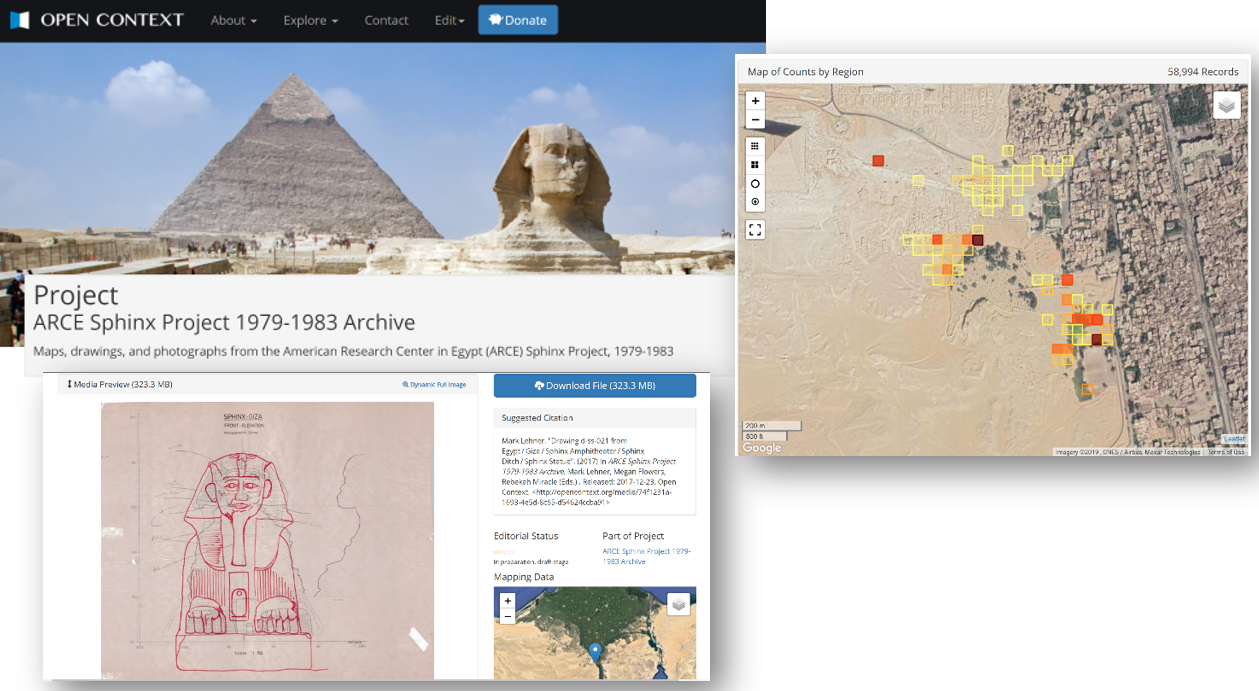
Designing, Timing, and Determining the Feasibility of Curatorial Interventions to Support Data Reuse
Yakel highlights findings from a case study, including data creation and selection practices that negatively influenced other stages of the data lifecycle and the curatorial interventions that mitigated these practices to create a more positive data reuse experience. Kansa discusses implications the findings have on the design, timing, and feasibility of curatorial interventions during a data’s lifecycle.
Topics: Research Data Management, Works in Progress
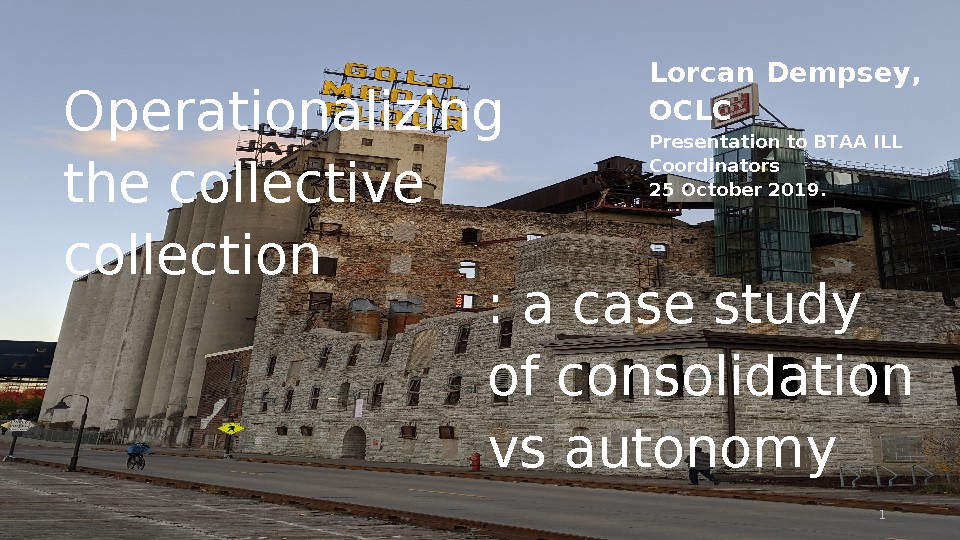
Operationalizing the Collective Collection: A Case Study of Consolidation vs Autonomy
Minneapolis, MN (USA)
Dempsey presents a case study describing the benefits of consolidating collective collections and provides recommendations for managing, building, and coordinating a system-wide library.
Topics: Collective Collections
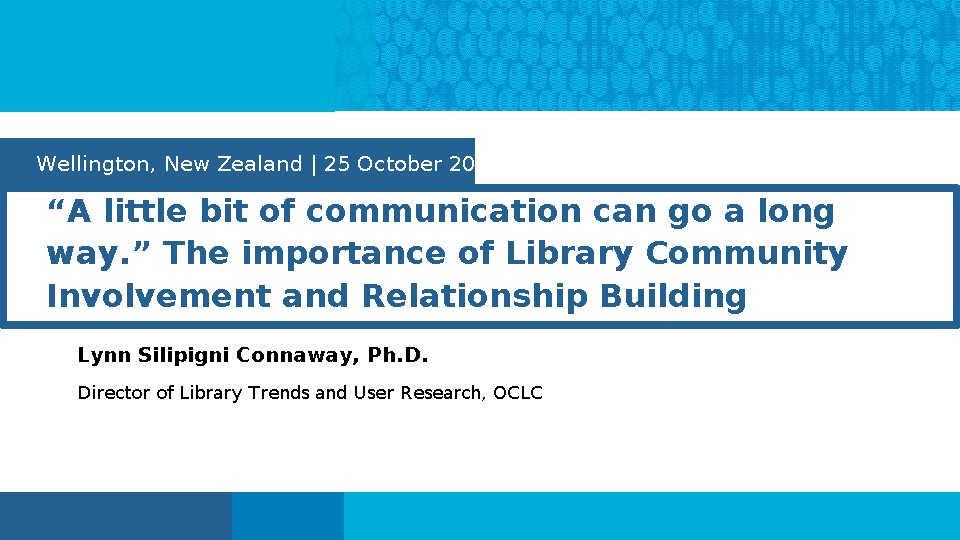
“A little bit of communication can go a long way.” The importance of Library Community Involvement and Relationship Building
Te Puna Libraries, New Zealand
In this presentation, Lynn Silipigni Connaway describes the different roles libraries play, and how libraries are centering themselves in the life of their users in several important ways. She also provides an overview of the OCLC Research Library Partnership.
Topics: Student Support
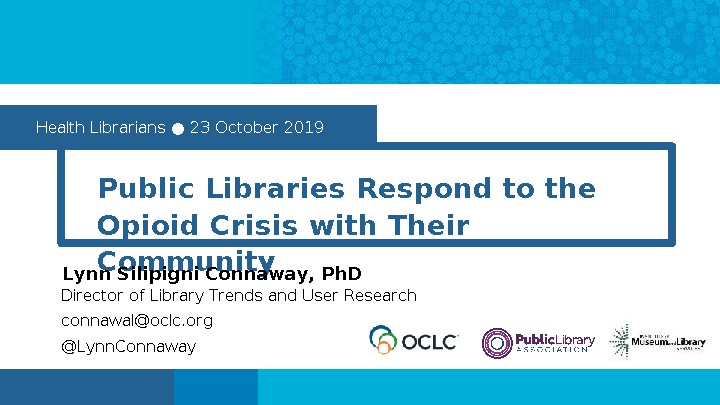
Public Libraries Respond to the Opioid Crisis with Their Community
Melbourne, Australia
This update on the project “Public Libraries Respond to the Opioid Crisis with Their Communities” reviews project goals and activities, methodology, and findings.
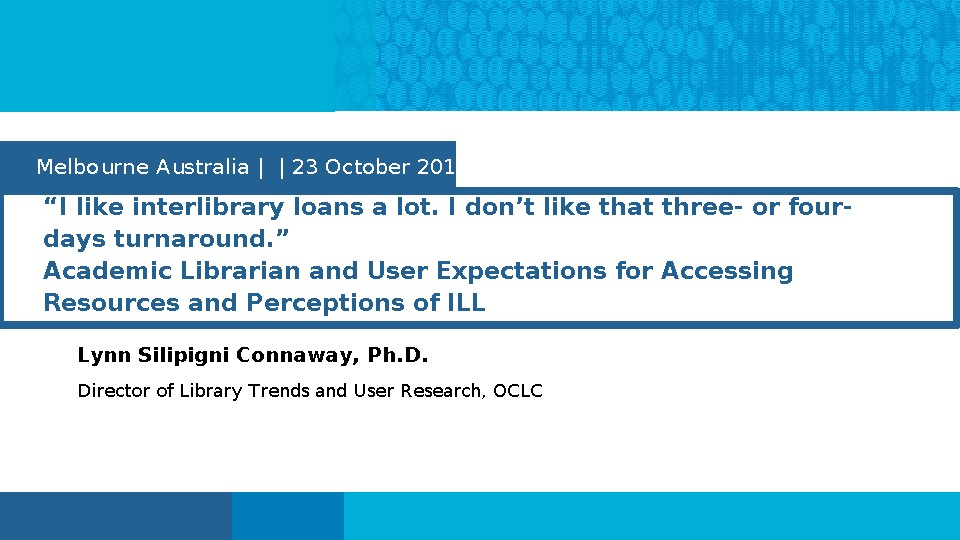
“I like interlibrary loans a lot. I don’t like that three- or four-days turnaround.” Academic Librarian and User Expectations for Accessing Resources and Perceptions of ILL
Melbourne, Australia
The presentation provides a detailed look at recent focus group research to assess resource sharing and interlibrary loan challenges and expectations. The effort aims to influence and guide strategic direction and product development of OCLC delivery services.
Topics: Resource Sharing
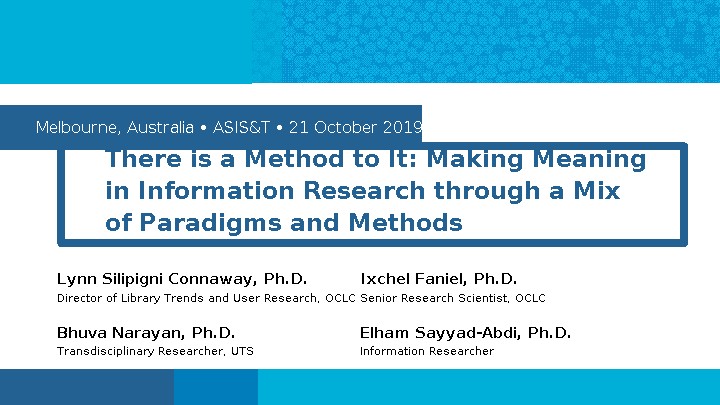
There is a Method to It: Making Meaning in Information Research through a Mix of Paradigms and Methods
Melbourne, Australia
Researchers share the prevalence of survey research, review qualitative and mixed-method studies, and provide real-world examples with Worldcat Discovery search log analysis.
Topics: Research Methods
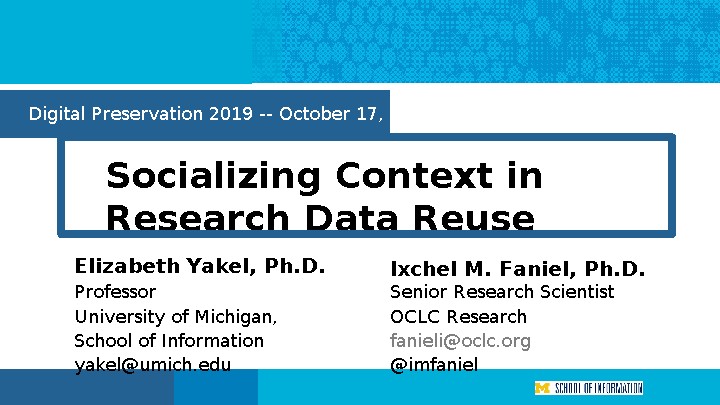
Socializing Context in Research Data Reuse
Tampa, Florida, USA
Presenters focus on data reuse and the data reuser's need for contextual information, the sources of context information, and the reasons why this information is needed.
Topics: Research Data Management
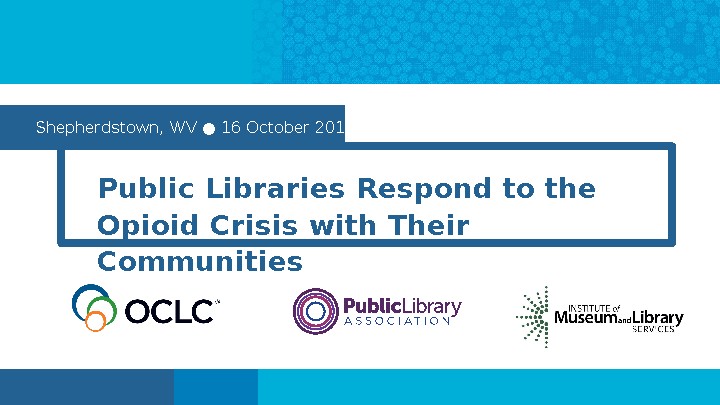
Public Libraries Respond to the Opioid Crisis with Their Communities
Shepherdstown, West Virginia, USA
Morgan provides an overview of the research and the outcomes of the OCLC and Public Library Association project "Public Libraries Respond to the Opioid Crisis with Their Communities" in this presentation.
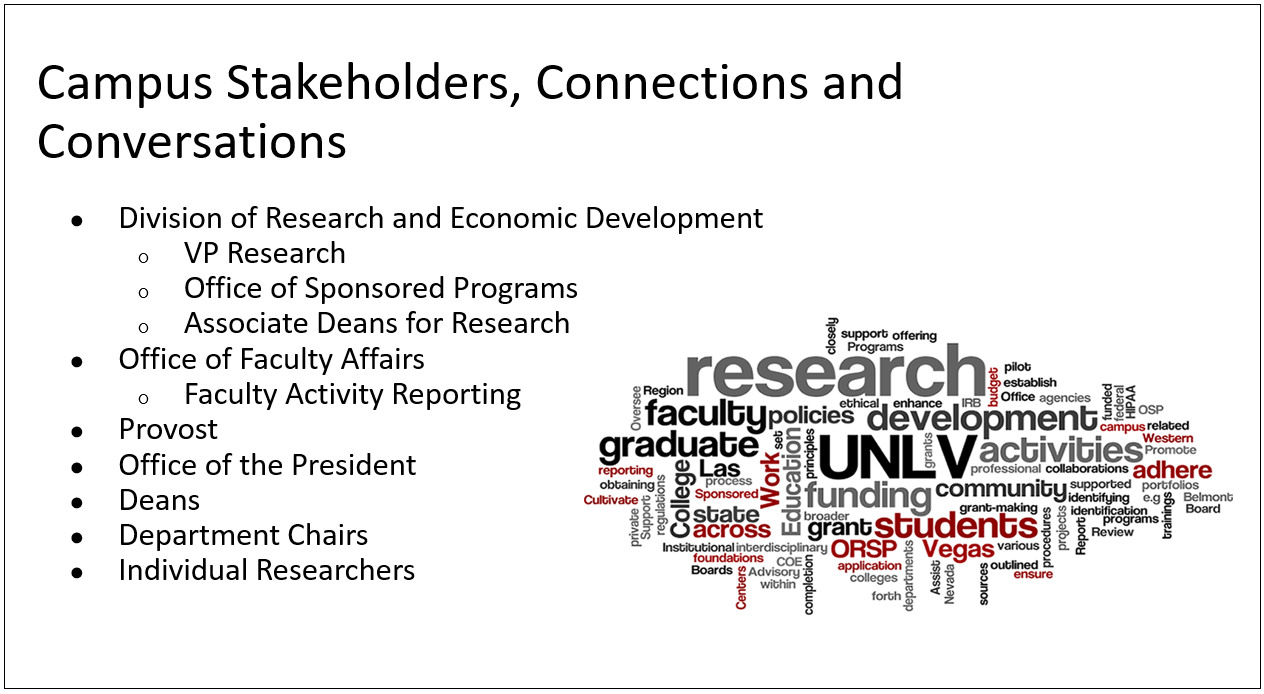
Partnering across campus to enhance institutional reputation—a case study from the University of Nevada, Las Vegas
This webinar shows how UNLV libraries are actively working with other campus stakeholders to develop centralized research information management infrastructures, workflows, and metrics to support research, scholarship, and creative activities.
Topics: Research Information Management, Works in Progress
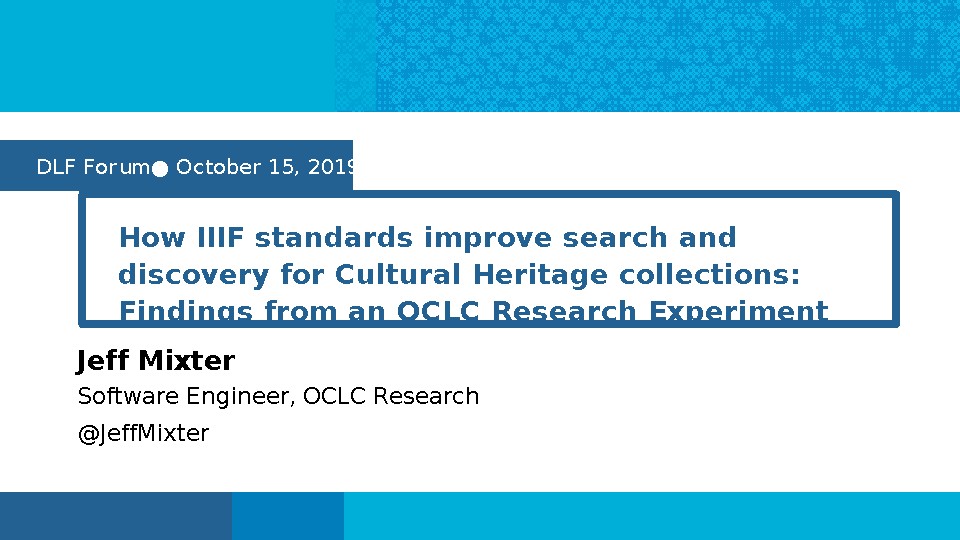
How IIIF standards improve search and discovery for Cultural Heritage collections
Tampa, Florida, USA
IIIF is an emerging standard for sharing digital structural metadata. OCLC is an active member of the IIIF community and has been working to integrate the standard in is services/products. This talk discusses the experimental IIIF work being done by OCLC Research to help test evolving IIIF standards and help integrate them into production services.
Topics: IIIF, Linked Data